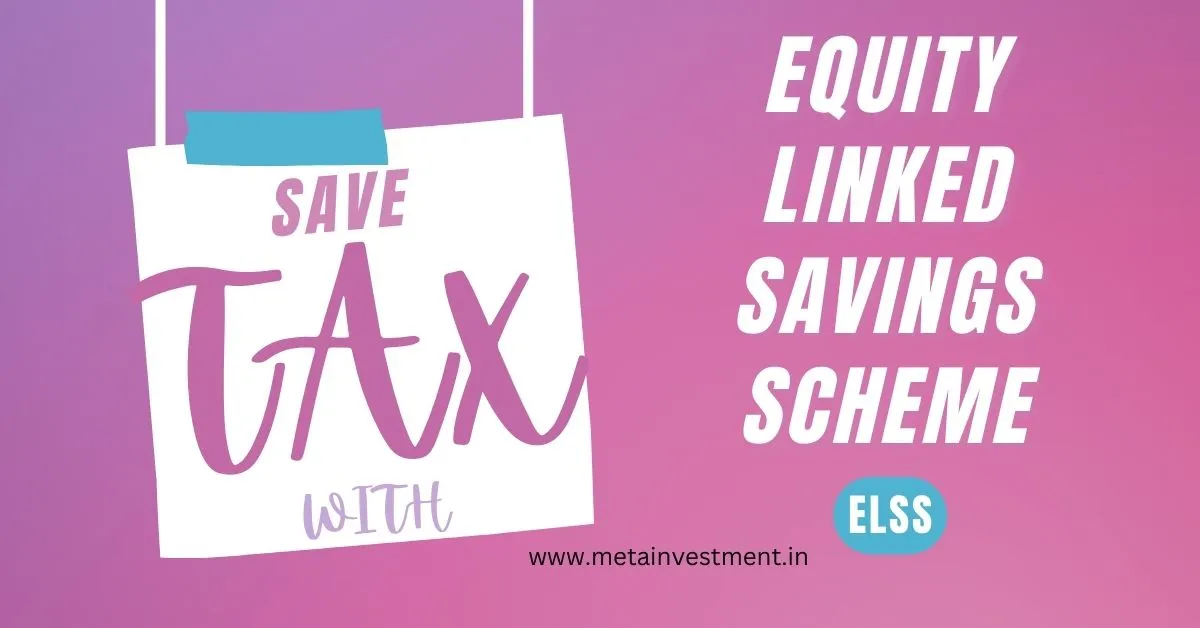Equity Linked Savings Schemes (ELSS) have emerged as a popular choice for individuals seeking to save on taxes while building long-term wealth. These tax-saving mutual funds offer a unique blend of tax benefits and the potential for significant returns, making them an attractive investment option for many.

Tax Savings Options
Tax payers who have opted for the Old Tax Regime can claim deductions of up to Rs 1.5 lakhs every year from their gross taxable income by investing in various schemes allowed in Section 80C of Income Tax Act. There are two types of 80C investments – schemes which pay fixed or variable interest rates e.g. Public Provident Funds (PPF), National Savings Certificates (NSC), tax saver term deposits etc and market linked schemes e.g. Equity Linked Savings Schemes (ELSS).
What is Equity Linked Savings Schemes (ELSS)?
Equity Linked Savings Schemes are diversified equity schemes with a lock-in period of 3 years. These funds diversify across different industry sectors and market capitalization segments. There is no upper limit of investments in ELSS; however, you can claim tax deduction of up to Rs 1.5 lakhs u/s 80C. ELSS offers higher wealth creation compared to all other 80C investments – historical data shows that equity as an asset class has usually outperformed other asset classes over long investment horizons.
Greater wealth creation using ELSS
The chart below shows the growth of Rs 100,000 investment in Nifty 500 TRI (as a proxy for equity as an asset class) versus PPF over the last 10 years ending 31st December 2024. You can see that despite higher volatility equity has the potential to create more wealth than fixed income over long investment horizon.

Why invest in ELSS?
-
80C investments should not just be about tax savings. You should also get wealth creation for your financial goals. ELSS funds have the potential of much higher wealth creation compared to other 80C schemes.
-
ELSS is the most liquid investment among all other 80C schemes. ELSS has a lock-in period of 3 years, while the lowest lock-in period among all other 80C options is 5 years.
-
ELSS is one of the most tax friendly investment options among all 80C investments. Capital gains in ELSS are tax free up to Rs 1.25 lakhs / year and taxed at 12.5% thereafter.
Choosing the Right ELSS Fund
Selecting the right ELSS fund is crucial for maximizing returns. Consider these factors:
-
Fund Manager’s Track Record: Look for funds managed by experienced and successful fund managers with a proven track record.
-
Investment Strategy: Evaluate the fund’s investment strategy and ensure it aligns with your risk tolerance and investment goals.
-
Performance History: Analyze the fund’s past performance, but remember that past performance is not indicative of future results.
-
Expense Ratio: Compare the expense ratios of different funds and choose those with lower costs.
Available Schemes
Currently, there are over 40 Equity Linked Savings Schemes (ELSS) mutual fund options available for investors. Some newer schemes, such as ‘Navi ELSS Tax Saver Nifty 50 Index Fund’ and ‘360 ONE ELSS Tax Saver Nifty 50 Tax Saver Index Fund,’ are passively managed, tracking a specific index like the Nifty 50. Other ELSS funds are actively managed by fund managers who aim to outperform the market.
Please refer to the table below for a comparison of returns generated by various ELSS schemes over 1, 3, 5, and 10-year periods.
| Scheme | 1 Year | 3 Year | 5 Year | 10 Year |
| Quant ELSS Tax Saver | 2.73 | 13.24 | 28.99 | 19.21 |
| Bank of India ELSS Tax Saver | 11.35 | 13.99 | 22.68 | 15.46 |
| DSP ELSS Tax Saver | 16.78 | 15.26 | 19.8 | 15.08 |
| JM ELSS Tax Saver Fund | 19.39 | 15.43 | 19.8 | 14.98 |
| BANDHAN ELSS Tax Saver | 6.43 | 11.25 | 20.14 | 14.26 |
Conclusion
ELSS funds can be a valuable tool for individuals looking to save taxes and build wealth. By carefully selecting a fund and investing for the long term, investors can potentially benefit from significant returns while enjoying the benefits of tax savings. However, it is essential to conduct thorough research and consult with a financial advisor before making any investment decisions.















